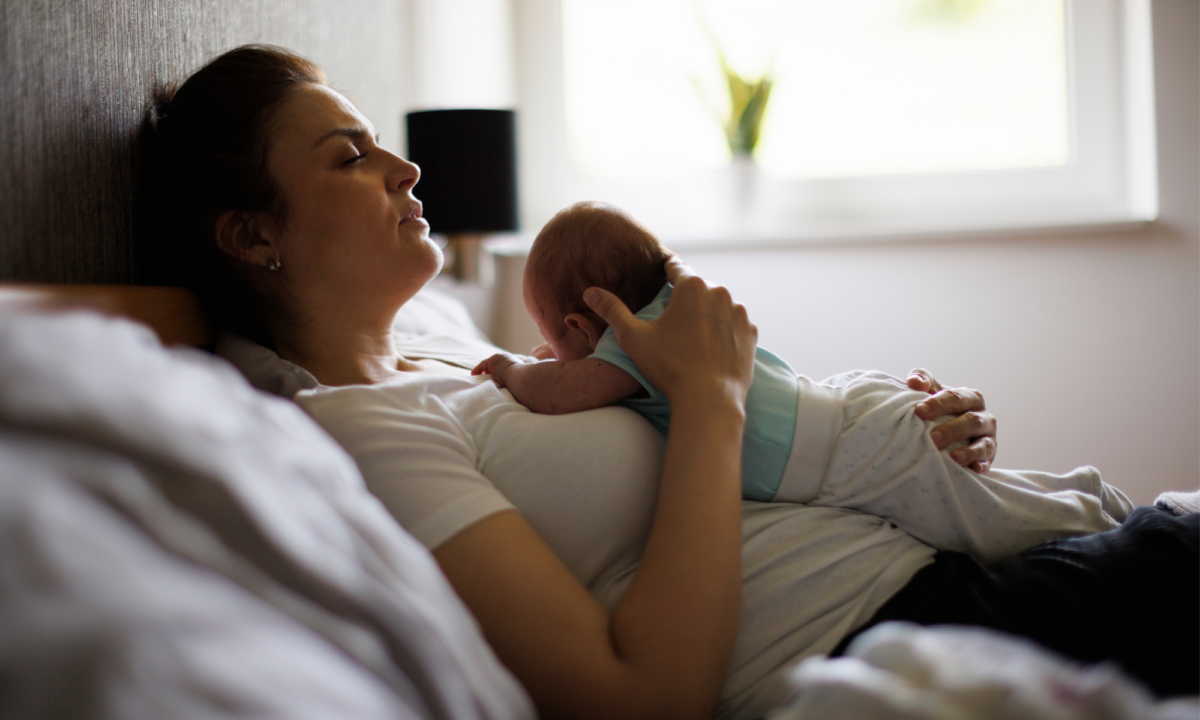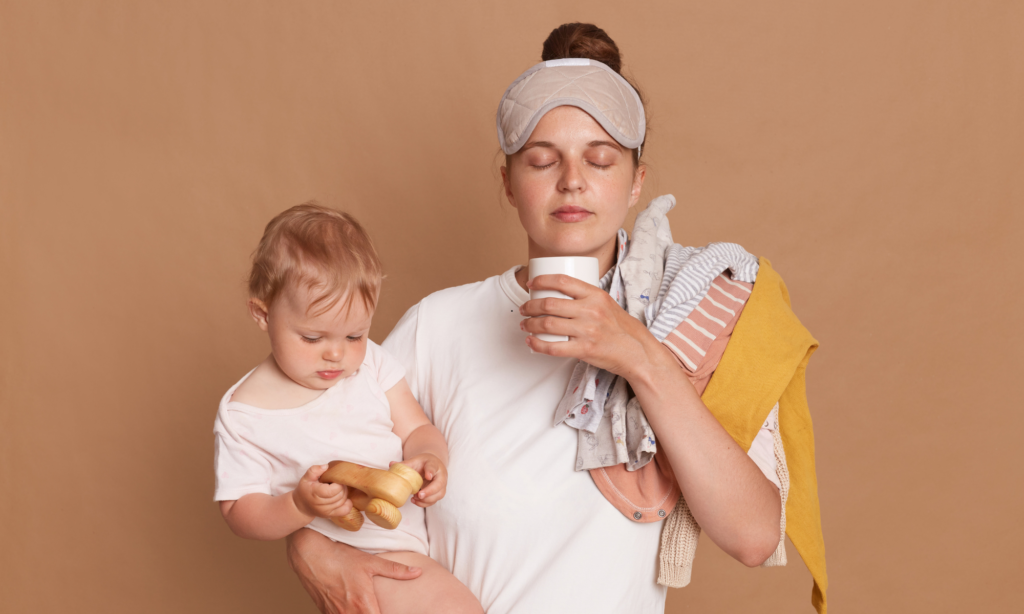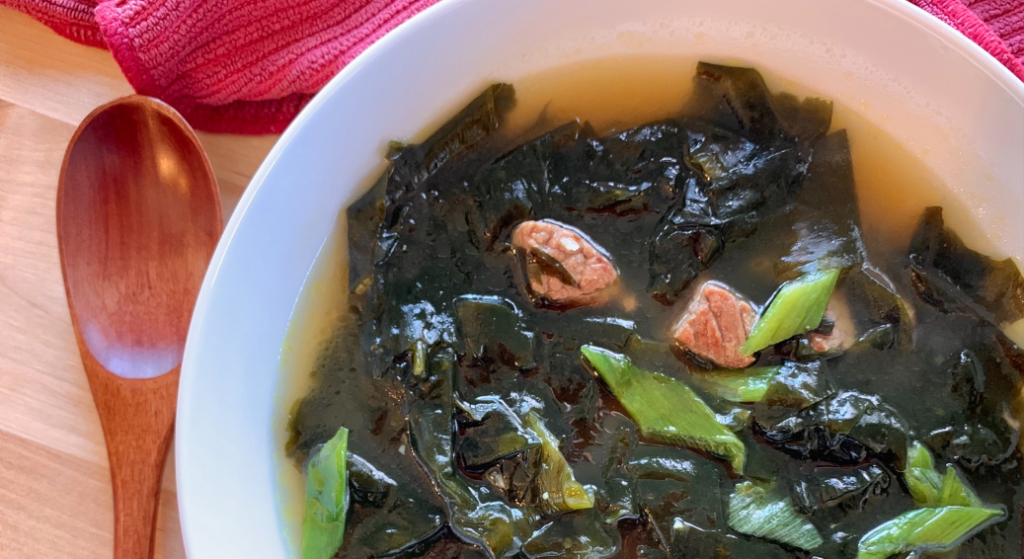
Nothing prepares you enough for motherhood. It is a life-altering moment in a woman’s journey defined by one single moment. Embrace the chaos and joy of giving life into the world by learning how to practice self-care after childbirth so you can recover well and be there for your young one.
As reproductive psychiatrist Dr. Alexandra Sacks beautifully said, “When a baby is born, so is a mother, each unsteady in their own way.”. Let’s not forget that postpartum moms like you are also navigating life the first time with your new role, regardless if this is your first kid or not.
New moms often experience a barrage of shame and invalidation from our society instead of compassion and understanding. That’s the very reason why Essential Wellness would like to support moms suffering in silence because you’ve done a good job bringing life to the world.
Before we get into the hows of postpartum self-care, it’s equally crucial to understand why most moms physically, psychologically, and physiologically change over time.
Why Postpartum Self-Care Is Not A Luxury But A Necessity

Recovery from childbirth comes in two identities: celebrating the child’s first moments and the rough transition of couples to parenthood. Having a life fully dependent on you for its survival can give almost anyone the round the clock anxiety and doubting one’s capability to raise them well.
What makes life after childbirth recovery one of the hardest chapters of your life as a mother is the internal and external changes in you as a human being.
From wound care and longer recovery for moms who had C-section, perineal tear, and other childbirth complications, women undergo a significant amount of transition in all areas of their lives such as:
Internal pressures
- Worrying about newborn health issues, feeding schedules, or caring for multiple children.
- Feelings of being drowned and with the overwhelming and overstimulating responsibilities and exhaustion of being 100% responsible for a new life
- Loss of autonomy in one’s life or neglecting one’s needs to cater to the baby’s needs
- Feeling grossed out by oneself from the night sweats and hormone fluctuations
- Feelings of invalidation and not being understood for what they are going through
- Feeling alone while being surrounded by people
- Feeling guilt, anxiety and feelings of inadequacy as a new mom
- Loss of identity due to inability to do what they used to anymore
- Lack of sleep and rest and hormonal fluctuations cause them to act “out of character” and raged
External pressures
- Overwhelm and guilt with managing a new baby, maintaining a home, and being a wife can create a constant sense of failure or inadequacy.
- Isolation and invalidation around family members and community
- Feeling isolated or unsupported, especially if they don’t have family nearby to help.
- Being scared of being left alone with the kid when a partner needs to work or other family members are away.
- Some parents struggle to financially support their kids which adds up to the overwhelm and stress postpartum.
All of those pressures and adjustments are taken on by one woman in pain and stitches. Imagine how strong you are and why it’s natural for you to say that postpartum life is tough. The things listed above are the reasons why raising a child takes a village and adds more reasons to learn how to do self-care after childbirth.
Listening to Your Body’s New Language: Baby Steps Towards Self-Care After Childbirth

Allow these pointers to show you why you as a postpartum mom should give yourself more grace and how you can start restoring and building your new mom self.
Where the Fatigue & Mood Swings Come From
Though it’s hard to set aside the expectations of a new mom, it is encouraged that you take a moment to realize what you lost as a human being in carrying another one in your body. You literally lose a significant amount of your own body due to the physical demands of pregnancy, labor, and breastfeeding, such as:
Childbirth
Childbirth causes significant fluctuations on the following chemicals that affect physical and emotional health:
- Estrogen and progesterone
- Oxytocin
- Prolactin
- Cortisol
Nutrients
You lose a significant amount of nutrients because you were sharing it with your child for nine months and it is used extensively during childbirth, such as:
- Iron
- Calcium
- Magnesium
- Vitamin D
- Vitamin B12 and Folate
Neurotransmitters
There’s a significant change in a woman’s brain chemicals during and after childbirth because they are directly linked to hormonal fluctuations.
- Serotonin or the “feel-good hormone”
- Dopamine
Thyroid Hormones
Some women experience a condition called postpartum thyroiditis, where thyroid hormone levels become imbalanced, leading to fatigue, mood changes, or weight fluctuations.
Electrolytes
As a newborn mom you are giving nutrition, nutrients and energy to your baby which explains why sodium, potassium, and electrolyte balance in your body gets disrupted. Labor, delivery, and breastfeeding can deplete these electrolytes that cause dehydration, muscle cramps, or fatigue.
Mimicking Best Practices From Other Cultures

In other cultures, there’s universal self care after childbirth where mothers are placed under a “postpartum confinement” or recovery provided by family members or postpartum institutions.
Every country has a different term and way to care for the new mom and their babies. These are 30 to 40-day recovery stages where family members, mother in laws or specialized postpartum centers help mothers rest extensively, consume specific nutritious foods, massages, and avoid certain activities to restore their health. They are called:
- China & Hong Kong: “Zuò yuè zi“, ”cho yuet” or “sitting the month”(30-day confinement period)
- South Korea: “Sanhujori” (21-day confinement period)
- India: “Jaappa” (40-day confinement period)
- Mexico: “La cuarentena” or “the quarantine” (40-day period)
- Nigeria: “Omugwo” (30-day confinement)
- Russia: “Babushki” (grandmas takeover the homemaking)
These practices, although not available in the US, can inspire new moms to take their best practices and adapt it as part of their postpartum self-care.
Micro Postpartum Self-Care Tips for Exhausted Newborn Moms

In the postpartum trenches where everything almost depends on your healing and exhausted body, in between a diaper change, feeding, and cleaning baby bottles, may you recognize that you are doing enough and the best that you can.
At this point, consider focusing on the basics or survival self-care after childbirth, replenish all the lost nutrients in your body and loosen up on the not-so-important parts of homemaking.
Here are some postpartum self care tips as you survive the first months of your baby:
1. The Healing Power of Support by Building Your Postpartum Care Circle
It’s so important to surround yourself with supportive people who make you feel understood and supported. Society can be harsh to parents, especially to newborn ones so it’s crucial to choose those who can make you feel seen and not invalidated.
- Follow newborn moms like you online to have a sense of community
- Join newborn mom groups
- Book weekly therapy with your therapist
- Talk to your family and friends frequently
Due to the external pressure, most moms are afraid to ask for help because of potential judgement. However, doing that will only make your situation worse. It’s crucial to get all the kind of help possible from families and friends like:
- Helping you with chores or simply cooking for you or sending in your favorite food. It’s okay to ask for help.
- Regardless of what culture you’re in it’s best to have your mom or loved ones come over and take turns in taking care of the baby so you can rest or get sleep.
- When there’s no available friends and family around, consider outsourcing some help with the laundry, deep cleaning the house or nursing the baby.
2. Reclaiming Your Identity As A New Mom
Most mothers would say that their experience with a newborn is totally different from what they expected. There are a lot of unrealistic expectations around motherhood and it’s essential to take the experience as it is and acknowledge the smallest ways you’re holding up well.
While it’s hard to juggle all the late night feedings and nursing the baby with self-care, you can start in micro self-care after childbirth with the following:
- It’s easy to neglect yourself with a newborn beside you. So, start with the basics of self-care, like something as simple as eating, taking a shower or getting a nap as soon as the baby is asleep can go a long way.
- Reading a book is also a simple hobby that you can do while feeding or trapped in the arms of your napping baby.
- Slowly add quick skincare into your routines. Check good skincare that’ll work with the dark circles and the type of skin you developed after giving birth.
- Remove the pressure of fitting in your pre-pregnancy weight and buy yourself comfortable clothes that will make you feel good.
- Satisfy your cravings once in a while with some taco or any delicious treat.
- Go outside at least once a day to get some morning sun and a change of scenery too.
3. Frequently Overlooked Postpartum Self-Care Secret

Some tips from moms all over the world will give you some mom wisdom while in the postpartum trenches. You can try some interesting postpartum not-so-secret tips like:
- Yoni steams with doctor supervision
- Postpartum care packages
- Postpartum wellness shots
- Postpartum foods do’s and don’ts:
- Ideal postpartum food and drinks:
- Collagen rich soups good for milk supply: seaweed and beef bone broth, pig’s feet soup with goji berries with beans.
- Teas and warm foods: Goji and jujube tea
- Nutritious seeds: black sesame seeds, roasted cashews
- Fruits: Banana & blueberries
- Not ideal postpartum food and drinks:
- Dry foods
- Coffee (acidic)
- Garlic and onions
- Chocolates
- Cold foods or ice drinks
- Heavy milks and creams
- Fried foods
- Ideal postpartum food and drinks:
Your Wellness Team: When to Call in the Experts
When your hands get too full and try every attempt with self-care and nothing helps that much, maybe it’s time to hire an expert. Get that much needed break and relief from overwhelming chores with our team so you can recuperate and be present and enjoy the first days of your young one.
Essential Wellness is a home health care agency in South Florida that aims to support the postpartum recovery of new moms or families with multiple children. Our services include:
Allow our nurses and homemakers to be on your rescue and talk to our team with our free consultation to know your options.
Parenthood is navigating uncertainty and being responsible for another human being at the same time. Every family is different and your approach is uniquely yours. Asking for help does not make you weak, it’s a sign of your drive to provide the best for your family.

